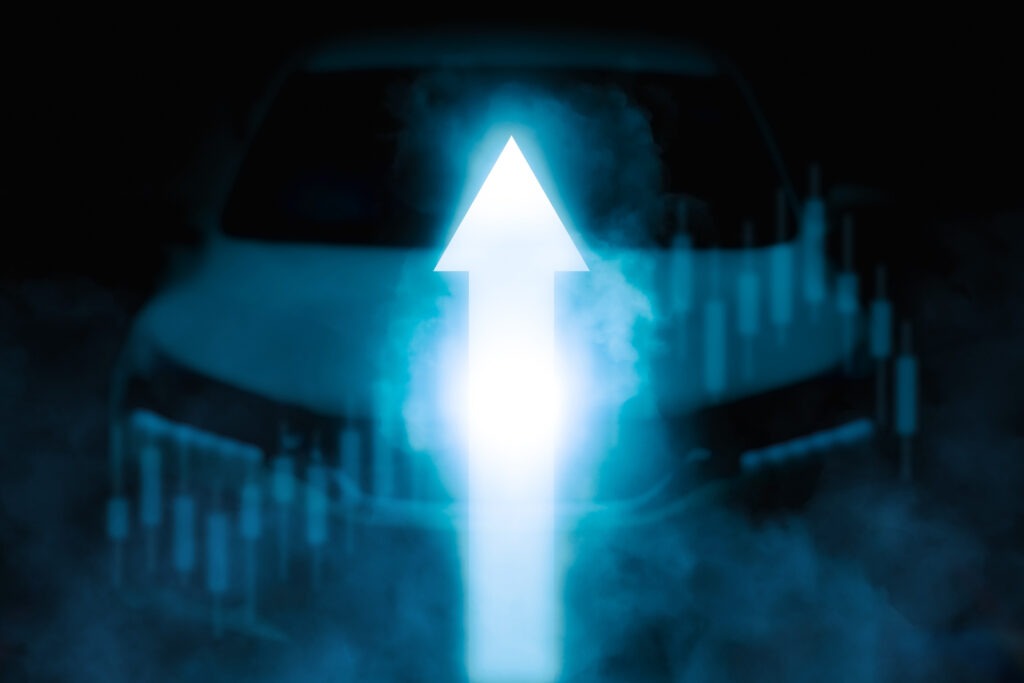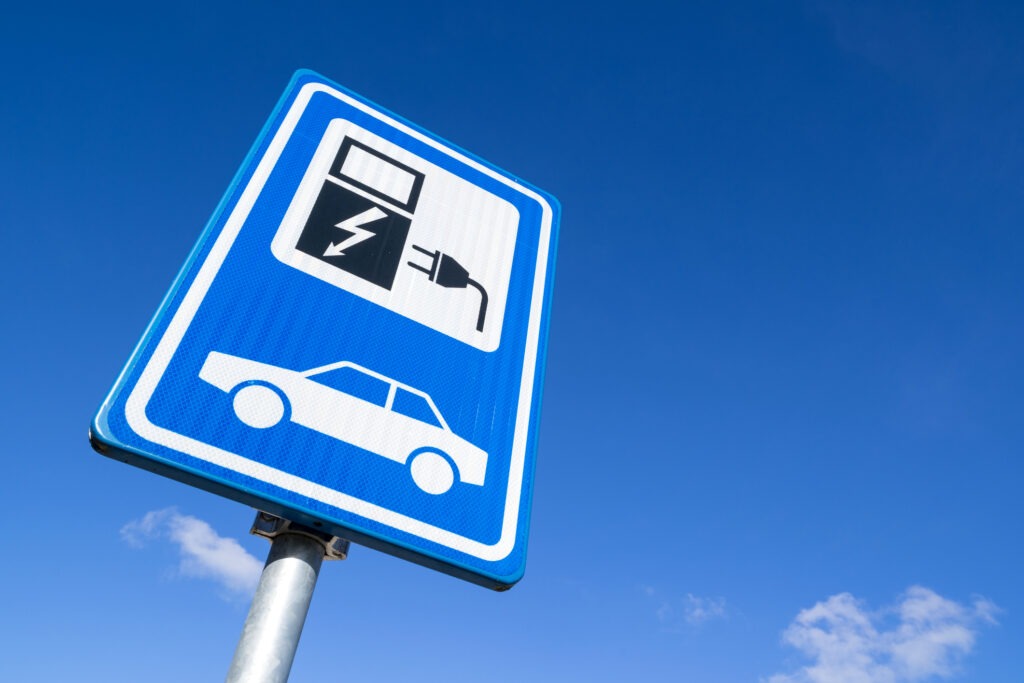PHEV registrations soar worldwide at the start of 2024
20 March 2024

It has been a strong start to the year for the global electric-vehicle (EV) market, helped by a surge in plug-in hybrid (PHEV) demand. José Pontes, data director at EV-volumes.com, reviews the figures with Tom Hooker, Autovista24 journalist.
A total of 1,067,248 EVs were registered worldwide in January, an increase of 63% year on year. This growth was mainly driven by the Chinese market, which helped the technology take a 16% share of the overall new-car market.
Battery-electric vehicle (BEV) deliveries grew 48% compared to January 2023, as they took a 10% share of overall deliveries. Meanwhile, PHEVs soared, up 91% compared with 12 months ago, thanks to improvements in China. The region represented over 60% of all EV registrations in January, highlighting how a strong performance in China can have a big impact on global figures.
The latest data from EV-volumes shows that rising volumes in smaller markets also helped to surpass the one-million-unit figure. Compared to January 2023, deliveries surged in Brazil (up 263%), Thailand (up 239%) and Turkey (up 219%).
EVs could end the year with a global market share of 20%, with BEVs possibly accounting for 15% alone. The all-electric technology represented 61% of total plug-in deliveries in January, slightly below its average EV market share in recent years.
Tesla takes control
The Tesla Model Y enjoyed a successful start to 2024, after becoming 2023’s most popular EV worldwide last year. The crossover was the best-selling electric model in January. It recorded 74,230 registrations, taking 7% of the plug-in market.
The BYD Song also replicated its 2023 finish, taking second place in January thanks to 52,290 deliveries. However, internal competition could jeopardise its performance in the coming months.
Its sibling, the Song L, is ramping up production and may enter the top 20 as early as March. It sat just outside the table in its third month on the market, posting 7,374 registrations. The brand is also awaiting the upcoming Sea Lion 07 BEV.
Rounding out the top three was the Tesla Model 3 with 35,109 units. The refreshed version may help to accelerate demand in the crossover's seventh year on the market.
The Aito M7 was a surprise in fourth, posting a record 29,997 registrations. This was an improvement of over 9,000 units on the Huawei-backed SUV’s previous best, set in December 2023. As it is exclusive to China, a slow February is expected for the model, as a result of the Chinese New Year. However, it could challenge the top three in March.
A block of BYD models filled four spots in a row from fifth. The manufacturer's domination in the table is fading, with six models present in January 2024’s top 20, compared to nine in the same month last year.
Geely’s good month
The bottom half of the top 20 also provided some interesting results, as the Geely Panda Mini took 14th, reaching 11,092 deliveries. The brand had cause for further optimism, as the Galaxy L7 finished in 17th, with 9,772 units.
On either side of the SUV came two models from Volkswagen (VW). The ID.4 took 16th place with 9,786 units, while in 18th place came the ID.3 with 9,604 units. The Deepal S7 finished in 20th with 9,109 registrations, including over 3,000 BEV units. The Changan-owned SUV should be a regular presence in the top 20 this year.
Outside the table, Geely continued its impressive January, with a record figure for the Galaxy L6 of 6,389 deliveries. Positive results elsewhere in the group included the Lynk & Co 08 (8,816 units) and the Volvo XC60 PHEV (7,523 units).
Finally, the GAC Trumpchi E9 PHEV had a record month (6,686 units), as the MPV targets its current segment leader, the Denza D9.
BYD’s bright start
Despite a smaller number of models featuring in the top 20, BYD was the best-selling EV brand in January. This was thanks to 195,411 registrations, representing 18.3% of the plug-in market. The Chinese carmaker had a comfortable lead of over 80,000 units from Tesla in second.
Geely impressed in third with 41,415 deliveries. The marque could challenge the top two in the future with the strength of its current fleet. Its strong performance was helped by the ramp-up of the Galaxy model range, added to the solid Panda Mini EV result.
Meanwhile, Aito jumped into seventh (31,002 units). The Chinese premium brand is less than 200 units away from its rival Li Auto in sixth. Both carmakers sat in front of VW (29,162 units) and Mercedes-Benz (26,969 units), in eighth and ninth respectively.
Also on the rise was Lynk & Co (19,598 units), which finished in 14th thanks to the good results of its 08 SUV.
Hyundai struggled in January (12,927 units), ending the month in 20th. It was beaten by Toyota in 18th (16,331 units) and Jeep in 19th (13,115 units). The latter is benefitting from the success of its Wrangler PHEV, which saw 6,003 deliveries in January. More growth is expected from the model as it capitalises on generous US EV incentives.
The Korean carmaker could come under threat in the following months, as Geely’s sub-brand Zeekr was just over 200 units away from the table. Additionally, Leapmotor (12,392 units) could soon challenge the top 20 with help from its upcoming C10 SUV.
VW struggle
With brands grouped together under their parent companies, BYD was once again on top in January. This was despite its market share falling to 19.8% from 22.7% in December 2023. Tesla also experienced a drop in share as it took second, taking 10.7% of all EV deliveries. These two figures could provide optimism for a more balanced EV market in 2024.
In contrast, Geely-Volvo gained ground in third, jumping to a 9.7% share from 5.8% one year ago. The group may challenge Tesla in the upcoming months. Elsewhere, VW Group sat in fourth with a 6.2% share. The German OEM will want to maintain this position in 2024.
However, SAIC (6.1% share) was close behind in fifth, thanks to the positive performance from its Wuling and IM Motors brands. The group’s grip on the market should keep growing, as the MG brand expands in Europe. Outside the top five, Changan (4.7% share) overtook Stellantis (3.7% share) for sixth.
Looking just at BEVs, Tesla remained the best-selling OEM, but its market share fell significantly to 17.6%. Combined with second-placed BYD’s growth (17.1% share), it means 0.5 percentage points separate the top two.
Geely-Volvo jumped into third (8.3% share) compared to a fifth-place finish last year. In contrast, last year's third-place holder, VW Group, ended January in fifth (6.9% share). In between the two groups was SAIC, which improved its share to 7.7%.



